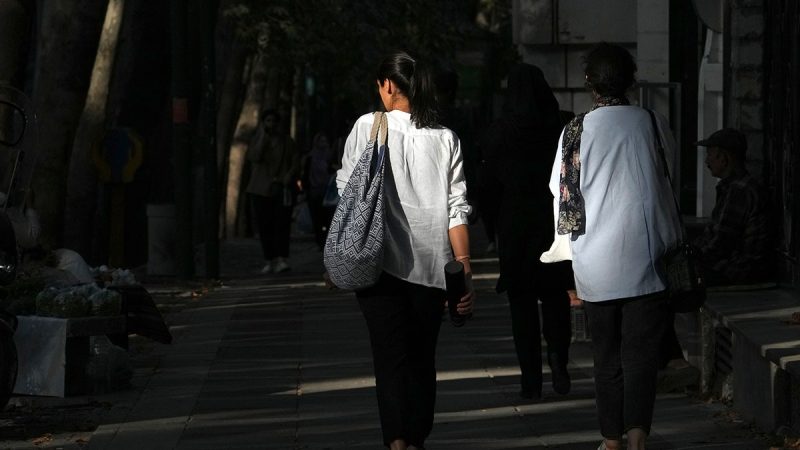The wife of Iran’s president said in a new interview Sunday that the country’s new hijab law is being implemented ‘out of respect for women,’ even as violators could face 10 years in prison.
Jamileh Alamolhoda, the wife of Iranian President Ebrahim Raisi, sat down for an interview with ABC ‘This Week’ host Martha Raddatz.
It was reportedly recorded a day after her husband’s speech before the United Nations General Assembly. Alamolhoda, a writer and researcher, defended the Iranian parliament’s move Wednesday to approve a bill imposing heavier penalties for women who refuse to wear the mandatory Islamic headscarf in public, as well as for any business owners who serve women not wearing a hijab and activists who organize against it. Violators could face up to 10 years in prison if the offense occurs in an organized way.
The U.N. previously compared the bill to ‘gender apartheid,’ ‘This Week’ noted.
‘What do you think should happen to women who choose not to wear a hijab?’ Raddatz asked.
‘The issue of hijab is part of a bigger issue about dress code in general,’ Alamolhoda said, according to the ABC host’s translated voiceover.
‘It is out of respect for women,’ she continued. ‘It is natural in any country, you have dress codes everywhere, even here in university environments, in schools and everywhere else. And I need to tell you that hijab was a tradition, was a religiously mandated tradition, accepted widely. And now for years it has been turned into a law. And breaking of the law, trampling upon any laws, just like in any country, comes with its own set of punishments.’
‘I’ll ask again, what do you think the punishment should be? Because there are women who believe it is repressive, while they respect those who wear their hijab, they don’t want to be forced to wear the hijab. So, what do you think the punishment should be?’ Raddatz asked.
‘I do not specialize in law,’ Alamolhoda said. ‘So I cannot answer you on a professional level, but punishments are equally dispensed to any breaking of the law throughout many countries.’
The bill was approved shortly after the anniversary of the death of Mahsa Amini, a 22-year-old woman who had been detained by the morality police for violating the country’s dress code.
More women have continued to openly defy the country’s hijab law after Amini’s death in custody on Sept. 16, 2022. Yet, following months of demonstrations, the United Nations estimates over 500 people were killed and over 22,000 were detained during the government’s crackdown of dissent earlier this year.
‘You had more than 500 people, including 71 children killed by Iranian police officers or law enforcement or, or military during those protests,’ Raddatz posed to Alamolhoda.
‘This event has been a big lie,’ Alamolhoda said, according to Raddatz’s translation, disputing the U.N. figures. ‘I do think that things can happen of that nature in any country naturally.’
‘However, in our country, they are turned into political projects. And those are due fundamentally because of the intentions of foreign governments who are keen to see other events occur in Iran,’ she added, reportedly blaming the United States.
‘So no one was killed? No one was executed because of those protests? Is that what you’re saying?’ Raddatz pressed.
In response, Alamolhoda claimed, ‘Many were killed, but in defending the Islamic Republic of Iran.’
Alamolhoda also disputed claims that Amini was beaten while in custody.
‘I was in constant contact with all of the medical personnel involved in this case,’ she said, according to Raddatz’s translation. ‘She was ill, she had pre-existing conditions. She was loved by all of us. I’m a mother myself. And I do understand that the value of girls and women as a whole.’
Amini’s family strongly disputes that was the cause of her death. Meanwhile, Iran’s president remarked in a fiery speech to the U.N. last week, ‘It is time now for the United States to bring a cessation to her traveling on the wrong path and choose the right-side.’
‘Ladies and gentlemen, a humanity is entering a new framework, old powers will keep their current downward trajectory they are the past and we are the future,’ Raisi said.
The Associated Press contributed to this report.
